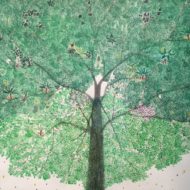Last week I gave a talk at the ‘Politics, Fake News and the Post-Truth Era’ symposium organised by the Institute for Policy Research at the University of Bath. I presented some of the work that myself and several other colleagues from the Public Data Lab, a network of researchers working to facilitate research, engagement and public debate around the future of the data society, have done on fake news this year.
I focused on two publications we produced this year:
A Field Guide to Fake News – a research report that uses digital sociology approaches to explore the production, circulation and responses to fake news online. This is done in the form of recipes which other journalists and researchers can follow and adapt to their own investigations. You can see here the outcomes of a collaboration we had with BuzzFeed News around one of the recipes to explore ad networks used by fake news sites.
Five Provocations about Fake News – a research article that draws on Science and Technology Studies (STS) to challenge some of the themes that underlie existing debates and research about fake news and proposes some provocations and analytical lenses to enrich the way we understand it.
In our work on the topic we try to step back from current models and responses to fake news and think about how we could meaningfully use our experience in science and technology studies, internet studies, media studies and digital sociology to provide different ways to understand this phenomenon. In doing so we try to expand conceptions of fake news beyond the focus on false content and misinformation and propose to treat fake news as a digital culture phenomenon. Treating fake news as digital culture, or of digital culture, is productive in two ways. First, it opens up a space for investigating multiple facets of this phenomenon, from its online circulation, to its publics and techno-commercial infrastructures. Second, defined as such, fake news presents us with the opportunity to more generally reflect on the social and political dynamics engendered by digital platforms.
The slides from this talk are available on SlideShare and A Field Guide to Fake News can be downloaded from its own website and from SSRN.
